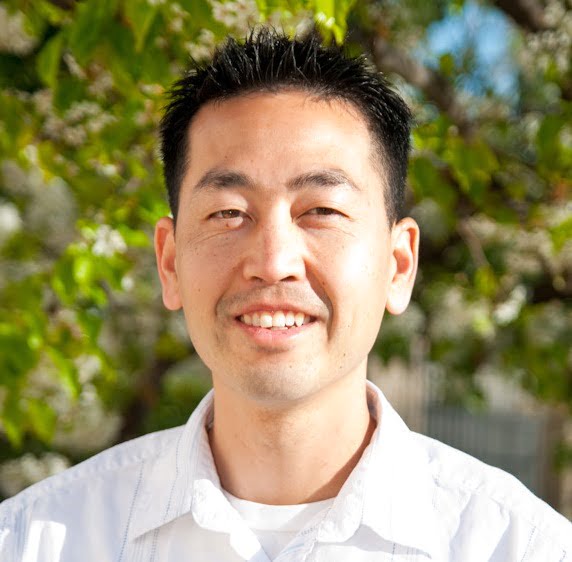⏱️ Estimated Reading Time: 11 min read
God, Where Are You When I Need You?
When bad things happen, some deny God’s compassion: “Even if I pray, it won’t change a thing.” Others diminish God’s sovereignty, demanding answers: “Why, O Lord? You owe me an explanation.” The prophet Habakkuk, however, humbly approaches the Lord as both loving and sovereign even though he cannot understand God’s ways.
The Prophet’s Passionate Prayer (Hab 1:2-4)
“O LORD,” the prophet cries (v. 2a). The covenant name, Yahweh, reminds God’s people of his eternal promises. Habakkuk is a man of prayer who often speaks with his God. Yet the Lord seems shockingly silent. So the prophet asks four questions—each a different way of wondering: “God, where are you when I need you?”
Are you there?
First, he cries, “O LORD, how long?” This common lament states a formal complaint between the prophet and his God. How long must the prophet wait before the Lord gives an answer? Have you ever prayed with similar passion, perhaps on your knees night after night, pouring out your heart: “O, Lord, watch over my friend as she receives medical treatment. Bring my brother in Christ to repentance from sin. Rescue my spouse from chronic pain. O Master, free me from this torturous temptation?” Like an infant desperate for its mother’s milk, all you felt was a painful longing. You were hungry and needy, yet God seemed not to answer. Realize that you were never alone in your suffering.
Are you deaf?
Our heavenly Father always answers the prayers of his children. So when God seems silent, we have simply not waited long enough. Surely the Lord is not deaf to Habakkuk’s plea: “How long shall I cry for help, and you will not hear? How long shall I cry to you ‘Violence!’ and you will not save?” (v. 2a-b). The verbs “to hear” and “to save” both carry the request of an active response, for violence abounds. The prophet, in essence, cries out to Yahweh: “Your covenant people are being slaughtered. Your spiritual daughter is being raped in the street. Why don’t you lift a hand to rescue her? Your son has been falsely accused by unjust courts. He has been tortured and condemned to death. Why, O God, have you forsaken him?” Describe the nature of your most passionate prayers to the Lord. What you say to God with no one around reveals the intimate cry of your heart and your faith that he alone can save you from your desperate plight.
Are you blind?
Habakkuk then laments, “God, are you blind?” “Why do you make me see iniquity, and why do you idly look at wrong?” (v. 3a). The prophet’s statement rings continuously without an answer: “Why must I see evil everywhere I go, while you keep looking the other way?” “Destruction and violence are before me; strife and contention arise” (v. 3b). The prophet piles up terms of injustice as he pleads for God to act. His knowledge of the Lord does not appear to fit his circumstances. Surely the all-knowing One can see every crime committed, every wrongful act, and every violent deed. Certainly, the all-powerful One must cast out evil from his presence. Habakkuk’s theology thus compels him to question God: “Why do you put up with sin?”
The problem of evil is only posed to those who believe in God, for only those who believe in God have high enough expectations to be dashed. Only those who believe he is both loving and sovereign must wrestle with that tension. Only those who believe he is omniscient expect him always to see injustice. Listen closely to how people talk about God during trials, and you will learn how to help them heal.
Are you just?
The fourth question Habakkuk asks is, “Are you just?” When the righteous Judge seemingly does nothing, then “the law is paralyzed, and justice never goes forth. For the wicked surround the righteous; so justice goes forth perverted” (v. 4). In Habakkuk’s day, God’s covenant law falls limp upon numbed hearts and calloused consciences. The wicked prevail, being more in number and greater in power than the righteous who live by the law. Worse still, the wicked in Judah are the Jewish leaders trampling on their own people’s rights. They use power and wealth to gain an advantage as they step on brothers to achieve their own ends. They abandon the law and forsake God’s commands until justice is cut off and perverted (Jer 6:6-7). Habakkuk can only cry out on behalf of the righteous remnant: “I believe you are the God who is there (Isa 41:10), the God who hears (Ps 66:17-20), the God who sees (Gen 16:13), and the God who is just (Job 36:6). So, where are you when we need you?”
Injustice is even more traumatic when inflicted by those you trust. Yet as your relationships rupture in a fallen world, do not question God’s fairness. Instead, find a faithful friend who will minister gently to your wounds and help you to heal. Reflect also on our Lord himself, who was betrayed by one of his closest friends (Ps 41:9).
The Lord’s Astonishing Answer: “I AM” (Hab 1:5-11)
I am King
Suddenly, from the silence, the Lord responds to his prophet with an astonishing answer: “Look among the nations, and see; wonder and be astounded. For I am doing a work in your days that you would not believe if told” (v. 5). Habakkuk had pleaded for God to “see iniquity” and to “look at wrong” (v. 3), so God tells him to look at his works and to see what he is already doing: “Habakkuk, open your eyes. Look beyond the iniquities of tiny Judah and observe my sovereign control among the nations. I may appear deaf and blind, but I, the Almighty God, remain at work in the world that I made. I am active even now, doing a work in your days that you would not believe even if I told you.”
The sovereign God is always at work in your life as well, though often behind the scenes. He directs everything which happens, whether in your personal life or among the nations. You, too, would be astounded if you could see the inner workings of God’s sovereign plan, yet he only offers glimpses to keep you walking by faith.
I am Judge
Suddenly, however, the atmosphere changes as the Lord continues to speak. If Habakkuk had been confused by God’s previous delay, then what about God’s present action? For instead of revival, God now promises retribution. Instead of an oracle of salvation, he delivers an oracle of judgment: “For behold, I am raising up the Chaldeans, that bitter and hasty nation, who march through the breadth of the earth, to seize dwellings not their own. They are dreaded and fearsome; their justice and dignity go forth from themselves” (vv. 6-7). Who is most powerful among the nations? God alone! But who is raising up the Chaldeans? God alone!
The Chaldeans are hasty and impetuous—a bitter nation that God spits from his mouth. They march across the earth like locusts seizing fortified cities, not their own. They bite and devour, then move on to the next. They scoff at justice, deride human dignity, and make their own rules as they think themselves gods. Their cavalry strikes with the swiftness of leopards and the fierceness of wolves at dusk (Jer 5:6). Jerusalem has no time to prepare her defenses, for the Chaldean “horsemen press proudly on. Their horsemen come from afar; they fly like an eagle swift to devour” (Hab 1:8). They sweep by like a whirlwind, leaving wreckage in their train: “They all come for violence, all their faces forward” (v. 9a). They do not waver from their singular intent of total devastation. The Lord’s startling judgment against violent Judah is to punish them with a violence still greater (Hos 8:7a). The Chaldeans then “gather captives like sand” (Hab 1:9b) to quell any future rebellion. The promise of God’s covenant blessing is now a metaphor of ruin (Isa 48:18-19).
“I am raising up the Chaldeans,” declares the Lord, “And nothing can stand in their way.” “At kings they scoff, and at rulers they laugh. They laugh at every fortress, for they pile up earth and take it” (Hab 1:10). A king is just another prisoner, and a fortress, mere child’s play, for they simply pile up dirt to construct their earthen ramps. They set in place their movable towers to besiege the city walls. The wicked in Judah, who had hemmed in the righteous (v. 4), would themselves be hemmed in by the horrors of siege (Deut 28:52-57). They would be cut off from food, water, and military aid. The Chaldeans would take eighteen months to sack Jerusalem, “then they [would] sweep by like the wind and go on” (Hab 1:11a). Their horses would chomp at the bit, reined in by the agonizing slowness of siege warfare. Yet once the fortified city fell and resistance crumbled, the cavalry would again advance, swift as the rushing wind. The Chaldeans would be God’s chosen instrument of judgment, even though they too were “guilty men, whose own might is their god!” (v. 11b). They did not worship the one, true God, having put their confidence in themselves and the strength of military might.
Consider Habakkuk’s distress: “O Lord, the Babylonians? Your solution terrifies me more than the original problem. The cure is far worse than the disease. I called upon you to save the righteous from cruelty within, yet you have answered by raising up a nation more terrible.” Recall a time when God’s answer to prayer did not meet your expectations. Can you trust in God when he acts in ways that you would not? Remember his faithfulness in the past to you, his people, and his promises.
I am Savior and Lord
Like Habakkuk, we too may wonder at times: “God, where are you when I need you?” The Lord replies to us throughout the breadth of Scripture, “I am right here where I’ve always been. I make all things work together for good, for those who are called according to my purpose” (Rom 8:28b). His followers could have cried, “God, where are you as your Son hangs upon a cross? Don’t you hear his anguished cries? Don’t you see his nail-pierced hands? How can you withhold justice?” God answers our heart-rending questions in surprising ways. He uses life’s difficulties to make us like his precious Son (v. 29a). He withholds what we think we need to give us what he knows is best. Is God loving? Yes, he is! Is he also sovereign? Most certainly!
How can we understand God’s apparent absence when everything seems wrong? The answer comes in the opening words, “O LORD!” (Hab 1:2) as Habakkuk calls out to the covenant-keeping God whose promises never fail. The prophet seeks the very God who had described himself as, “The LORD, the LORD, a God merciful and gracious” (Exod 34:6b). He forgives repentant sinners as “a God slow to anger, and abounding in steadfast love and faithfulness, keeping steadfast love for thousands, forgiving iniquity and transgression and sin” (vv. 6c-7a). He defends the oppressed as “a God who will by no means clear the guilty, visiting the iniquity of the fathers on the children and the children’s children, to the third and the fourth generation” (v. 7b).
Discover through Habakkuk this covenant-keeping God whose promises never fail. How will you respond when God seems absent? You can deny God’s existence, his love for you, and his sovereignty over life. Or else, you can worship him as your heavenly Father, who always does what’s best for his children. Honor the Lord by affirming both his sovereignty and his love when bad things happen. Even when you cannot hear his voice and the day is dark, he is right there with you.




